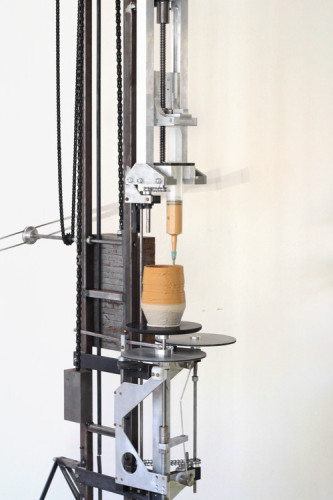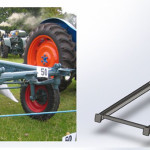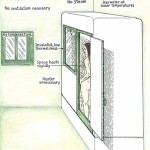 “3D printing allows me to create products more swiftly and more efficiently than ever. But these products don’t feel mine. They are merely a product of this new technology. I love technology but how can I reclaim ownership of my work? Perhaps by building the machine that produces the work. Perhaps by physically powering the machine, which I built, that produces the work.”
“3D printing allows me to create products more swiftly and more efficiently than ever. But these products don’t feel mine. They are merely a product of this new technology. I love technology but how can I reclaim ownership of my work? Perhaps by building the machine that produces the work. Perhaps by physically powering the machine, which I built, that produces the work.”
Instead of building a traditional 3D printer, Daniël de Bruin decided to harken back to a past when pantographs and mills ruled the shop floor by making a device which doesn’t require software or electricity to work its magic. His 3D printer is driven by a 7.5 pound weight. “The weight allows me to be connected with the process because there’s no external force involved like electricity; it’s still me that’s making the print,” says de Bruin. “By physically building and powering the machine, the products that come out of it are the result of all the energy that has gone into it.”
For those who complain about the speed of FDM 3D printers, de Bruin says his machine is actually faster. It all comes down to a nozzle diameter of approximately 2mm – rather than the 0.35mm – 0.4mm which is the standard for most 3D printers. While there may be a slight loss in quality with his process, he says his old-school machine can print objects using clay material, pasta, starch bio plastics, and pretty much any material that can fit through the extrusion nozzle, which doesn’t require heat.
See & read more at Daniël de Bruin and 3Dprinterworld. Seen at the Milan Furniture Fair. Related: Human powered 3D-printer.





